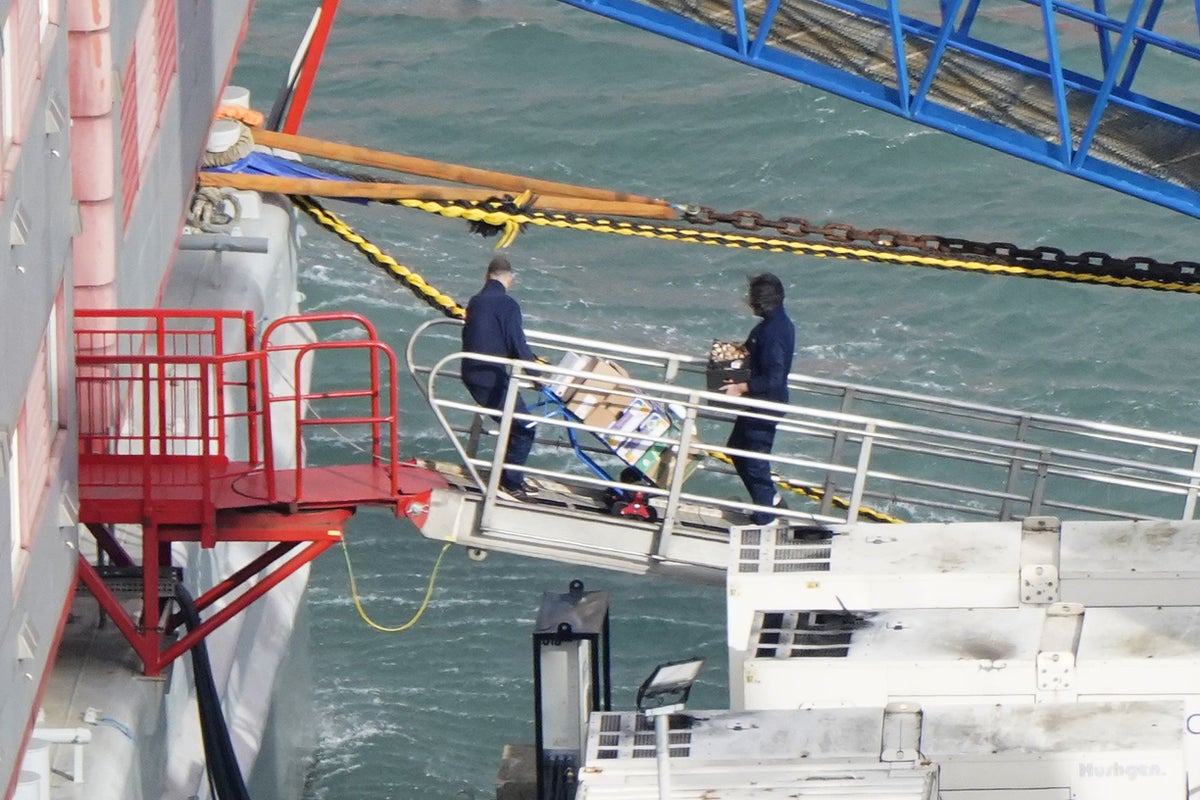
Asylum seekers are set to return to the Bibby Stockholm barge on Thursday.
It is expected that the Home Office will begin transferring a number of people back to the vessel at Portland Port, Dorset, more than two months after it was evacuated following the discovery of Legionella bacteria in the water supply.
The Home Office has said all necessary tests have been completed and letters have been sent to asylum seekers confirming their re-embarkation.
On Tuesday, a van was seen to deliver food including fresh vegetables to the barge.
It is understood that several groups are planning to protest at the gates to the commercial port on Thursday as campaign groups for refugee rights have hit out at the use of the Bibby Stockholm.
Nicola David, of the One Life To Live campaign, said that a letter signed by the 39 men who previously stayed on the barge described how they had found the Bibby Stockholm to be a “terrifying residence” like a prison and had left them feeling “stress and anxiety”, with one of the asylum seekers having attempted suicide.
She said: “Nothing about the Bibby Stockholm has gone well – it wasn’t even the Home Office’s first or second choice of barge, so they had to settle for something 50 years old, rotten, and unfit for use.
“The barge had endless delays for repairs, Legionella, failed plumbing, and fire safety failure. I discovered that it costs more per head than hotels, not less, so the Government’s strategy doesn’t add up. And there are claims going through the High Court.”
Last week, local councillor Carralyn Parkes, who is mayor of Portland, lost a High Court fight against Home Secretary Suella Braverman over the lawfulness of housing asylum seekers on the barge.
A Home Office spokesperson said previously: “The Home Office has started to send letters to asylum seekers to confirm the re-embarkation of the Bibby Stockholm and notify them that they will be accommodated on board, following the vessel completing all necessary tests.
“The letters confirm the next steps for asylum seekers and reiterate that all asylum accommodation continues to be offered on a no-choice basis.
“Delivering alternative accommodation sites, such as the vessel, is more affordable for taxpayers and more manageable for communities, due to healthcare and catering facilities on site, 24/7 security and the purpose-built safe accommodation they provide.”







